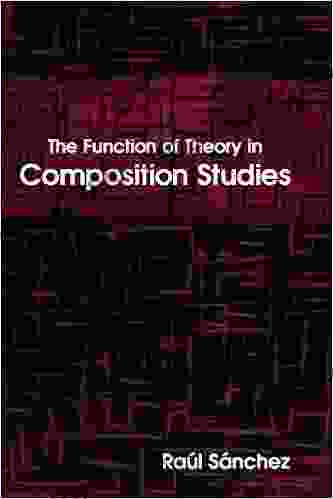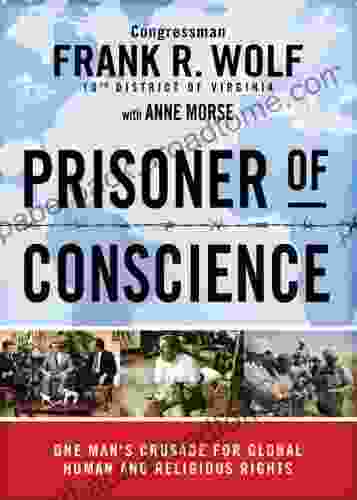The Function of Theory in Composition Studies: A Comprehensive Guide

5 out of 5
| Language | : | English |
| File size | : | 1064 KB |
| Text-to-Speech | : | Enabled |
| Print length | : | 134 pages |
Theory plays a vital role in composition studies, providing a framework for understanding and analyzing the complex processes of writing and communication. It offers a lens through which we can examine the ways in which writers create meaning, negotiate power, and engage with the world around them. In this article, we will explore the function of theory in composition studies, examining its role, benefits, and applications.
The Role of Theory in Composition Studies
Theory provides a foundation for composition studies by offering a set of concepts and principles that can be used to analyze and interpret writing. It helps us to understand the complex relationship between language, thought, and action, and provides a framework for examining the ways in which writers communicate with their audiences. Theory also allows us to identify and critique the assumptions that underlie our own writing practices and to develop more effective strategies for teaching writing.
The Benefits of Using Theory in Composition Studies
There are many benefits to using theory in composition studies. Theory can help us to:
- Understand the complex relationship between language, thought, and action. Theory provides a framework for understanding how language shapes our thoughts and how our thoughts are expressed through language.
- Identify and critique the assumptions that underlie our own writing practices. Theory helps us to become more aware of our own assumptions about writing and to identify the ways in which those assumptions may be limiting our writing.
- Develop more effective strategies for teaching writing. Theory provides a foundation for developing effective teaching strategies that are based on sound principles of learning and cognition.
Applications of Theory in Composition Studies
Theory can be applied to a wide range of topics in composition studies, including:
- The writing process. Theory can help us to understand the different stages of the writing process and to identify the challenges that writers face at each stage.
- Rhetorical analysis. Theory can help us to analyze the ways in which writers use language to persuade, inform, and entertain their audiences.
- Composition pedagogy. Theory can help us to develop more effective teaching strategies for writing instruction.
Theory is an essential tool for composition studies. It provides a framework for understanding and analyzing the complex processes of writing and communication, and offers a lens through which we can examine the ways in which writers create meaning, negotiate power, and engage with the world around them. By using theory in our research, teaching, and writing, we can gain a deeper understanding of the writing process and develop more effective strategies for teaching writing.
5 out of 5
| Language | : | English |
| File size | : | 1064 KB |
| Text-to-Speech | : | Enabled |
| Print length | : | 134 pages |
Do you want to contribute by writing guest posts on this blog?
Please contact us and send us a resume of previous articles that you have written.
Light bulbAdvertise smarter! Our strategic ad space ensures maximum exposure. Reserve your spot today!
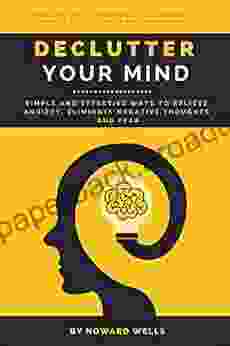
 Eugene PowellSimple And Effective Ways To Relieve Anxiety Eliminate Negative Thoughts And
Eugene PowellSimple And Effective Ways To Relieve Anxiety Eliminate Negative Thoughts And
 Edison Mitchell"We Only Go Little Way Together P3": A Literary Journey That Will Resonate...
Edison Mitchell"We Only Go Little Way Together P3": A Literary Journey That Will Resonate...
 Dan HendersonEli Crazy For Paleo Cookbook: Your Gateway to a Healthier and More Vibrant...
Dan HendersonEli Crazy For Paleo Cookbook: Your Gateway to a Healthier and More Vibrant... Matthew WardFollow ·3.5k
Matthew WardFollow ·3.5k Noah BlairFollow ·6.9k
Noah BlairFollow ·6.9k Darnell MitchellFollow ·13.6k
Darnell MitchellFollow ·13.6k Chinua AchebeFollow ·11.7k
Chinua AchebeFollow ·11.7k Jeremy CookFollow ·19.3k
Jeremy CookFollow ·19.3k Jeffery BellFollow ·12.2k
Jeffery BellFollow ·12.2k Jean BlairFollow ·5.5k
Jean BlairFollow ·5.5k Allen ParkerFollow ·4.2k
Allen ParkerFollow ·4.2k

 Isaiah Powell
Isaiah PowellWisconsin Clinic Pilots Mobile Crisis Response System For...
MADISON, Wis. - A new mobile crisis...

 Daniel Knight
Daniel KnightUnleash Your Creativity: A Masterclass in Fabulous Nail...
Embellish Your Fingertips with Captivating...
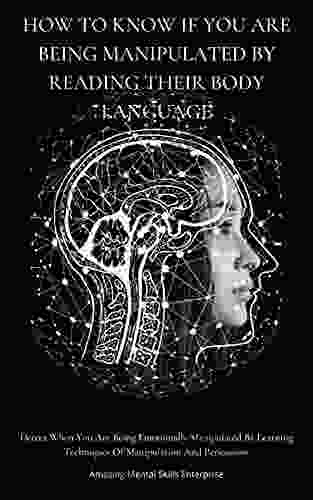
 Clark Campbell
Clark CampbellDetect When You Are Being Emotionally Manipulated By...
Emotional manipulation is a subtle but...
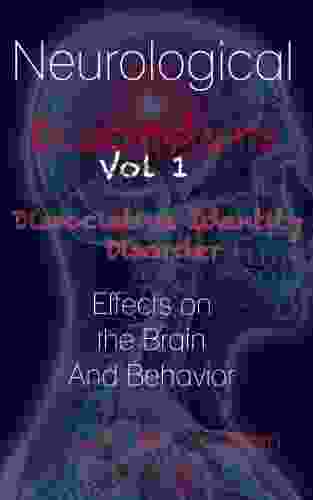
 Eli Brooks
Eli BrooksNeurological Disorders Papers: Dissociative Identity...
What is Dissociative...

 Ricky Bell
Ricky BellAn Introduction to Islam for Jews: Unveiling the Tapestry...
A Bridge of Understanding: Exploring Islam for...
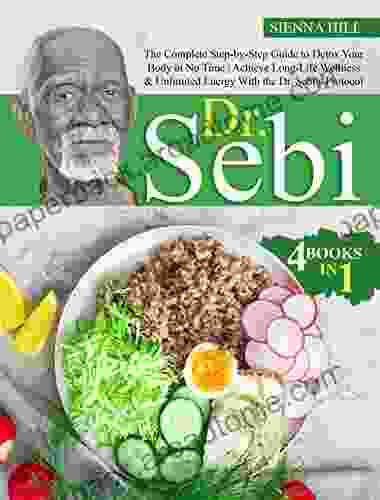
 Octavio Paz
Octavio PazAchieving Longevity: The Complete Step-by-Step Guide to...
**** In the ever-evolving landscape of health...
5 out of 5
| Language | : | English |
| File size | : | 1064 KB |
| Text-to-Speech | : | Enabled |
| Print length | : | 134 pages |


